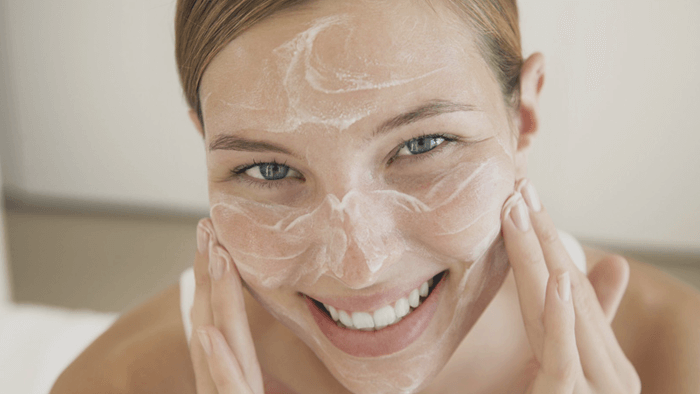Separating Fact from Fiction
When it comes to unconventional beauty remedies, the idea of using sperm for skin improvement has garnered attention and sparked countless debates. But is there any truth behind this viral notion? Today, we delve into the science to determine if sperm is genuinely beneficial for the skin or simply an urban myth.

The Nutritional Composition of Sperm
Sperm is a vital component of reproduction and contains various nutrients. A typical ejaculation is composed of proteins, vitamins, minerals, fructose, zinc, and other compounds essential for reproductive health. However, the concentration of these substances is relatively low compared to the amount required for visible skin improvement.
Moisturizing Claims
Proponents of using sperm for skin proclaim its moisturizing properties. While semen may make the skin feel temporarily soft due to its water content, this effect is short-lived. It is more beneficial to invest in a reputable moisturizer tailored to your skin type, which will provide lasting hydration benefits.
Myth Debunked: Sperm and Acne Treatment
One of the widespread claims supporting sperm's benefits is its supposed ability to treat acne. However, scientific research does not support this claim. Acne is a multifactorial condition primarily caused by excess sebum production, clogged pores, and bacterial growth. Sperm does not possess properties that effectively combat these underlying causes.
Potential Negative Effects
Applying sperm to the skin also carries potential risks. Considering hygiene concerns and the unpredictable reactions of individual skin types, it is generally advised against experimenting with this unorthodox skincare method. Furthermore, sexually transmitted infections could be a significant concern if sperm comes into contact with compromised or broken skin.
Skin Care Alternatives
If you are seeking legitimate ways to improve your skin health, consider well-established skincare practices instead. Maintaining a balanced and nutritious diet, regularly cleansing your skin, using SPF protection, and investing in high-quality skincare products are far more reliable approaches to ensure healthy and radiant skin.
Conclusion
Contrary to popular belief, sperm does not offer substantial benefits for skin health. It lacks the necessary concentration of nutrients to visibly improve your complexion, and any perceived benefits are often temporary. Relying on science-backed skincare methods, such as a balanced skincare routine and healthy lifestyle choices, will yield more significant and lasting results for your skin's overall well-being.
Remember, it's crucial to consult licensed dermatologists or skincare professionals for personalized advice when searching for effective ways to enhance your skin health, always relying on trusted sources rather than internet myths and trends.Related FAQs about is sperm good for skin
What nutrients are found in sperm that contribute to skin health?
Sperm contains proteins, vitamins, minerals, fructose, and zinc, which are essential for reproductive health. However, the concentration of these nutrients is relatively low and insufficient for noticeable skin improvement.
Does sperm have moisturizing properties for the skin?
Sperm may provide temporary moisturization due to its water content. However, for long-lasting hydration, it is advisable to use a dedicated moisturizer suited to your skin type.
Is sperm an effective treatment for acne?
No, scientific research does not support the claim that sperm can effectively treat acne. Acne is caused by factors such as excess sebum, clogged pores, and bacteria, which sperm does not effectively address.
Are there any potential negative effects of using sperm on the skin?
Applying sperm to the skin can pose hygiene concerns and may lead to unpredictable reactions based on individual skin types. In addition, there is a risk of transmitting sexually transmitted infections if the sperm comes into contact with compromised or broken skin.
What are some alternative methods for improving skin health?
Instead of relying on sperm for skin improvement, opt for proven skincare methods. These include maintaining a balanced diet, regular cleansing, applying SPF protection, and using high-quality skincare products to achieve healthy and radiant skin.
Glossary about is sperm good for skin
1. Sperm: Sperm refers to the male reproductive cells, or gametes, produced in the testes of animals and humans. It is essential for sexual reproduction and fertilization of the female egg.
2. Proteins: Proteins are complex molecules composed of amino acids. They play a crucial role in various biological processes, such as growth, repair, and maintenance of body tissues.
3. Vitamins: Vitamins are organic compounds required in small amounts for the proper functioning of the body. They are essential for overall health, growth, and development.
4. Minerals: Minerals are inorganic substances necessary for the body's normal functions. They are involved in various physiological processes, such as bone development, nerve function, and enzyme activity.
5. Fructose: Fructose is a natural sugar found in fruits, honey, and some vegetables. It is a source of energy and provides sweetness to foods.
6. Zinc: Zinc is an essential mineral required by the body for numerous enzymatic reactions and immune system functioning. It is involved in cell division, DNA synthesis, and wound healing.
7. Acne: Acne is a common skin condition characterized by pimples, blackheads, and blemishes. It occurs when hair follicles become clogged with oil, dead skin cells, and bacteria.
8. Hygiene: Hygiene refers to practices that promote cleanliness and health, preventing the spread of diseases and maintaining overall well-being. It includes personal hygiene, environmental hygiene, and food hygiene.
9. Sebum: Sebum is an oily substance produced by the sebaceous glands in the skin. It helps moisturize and protect the skin, but excess sebum production can lead to clogged pores and acne.
10. SPF Protection: SPF (Sun Protection Factor) refers to a rating system that measures a sunscreen's ability to protect the skin from harmful ultraviolet (UV) rays. It indicates the level of protection against sunburn and skin damage.
